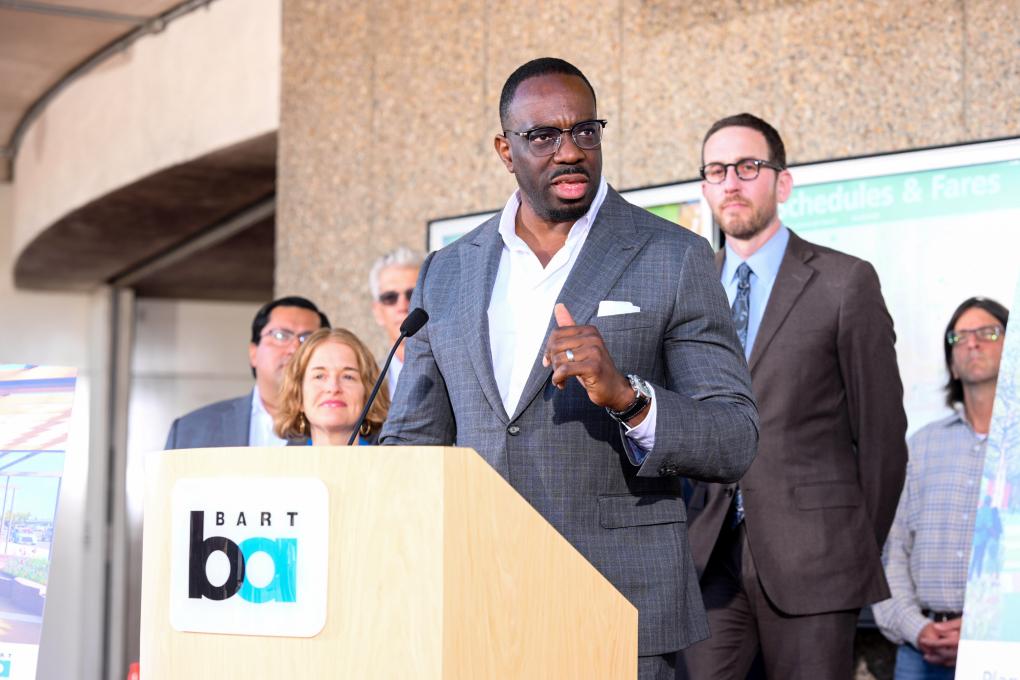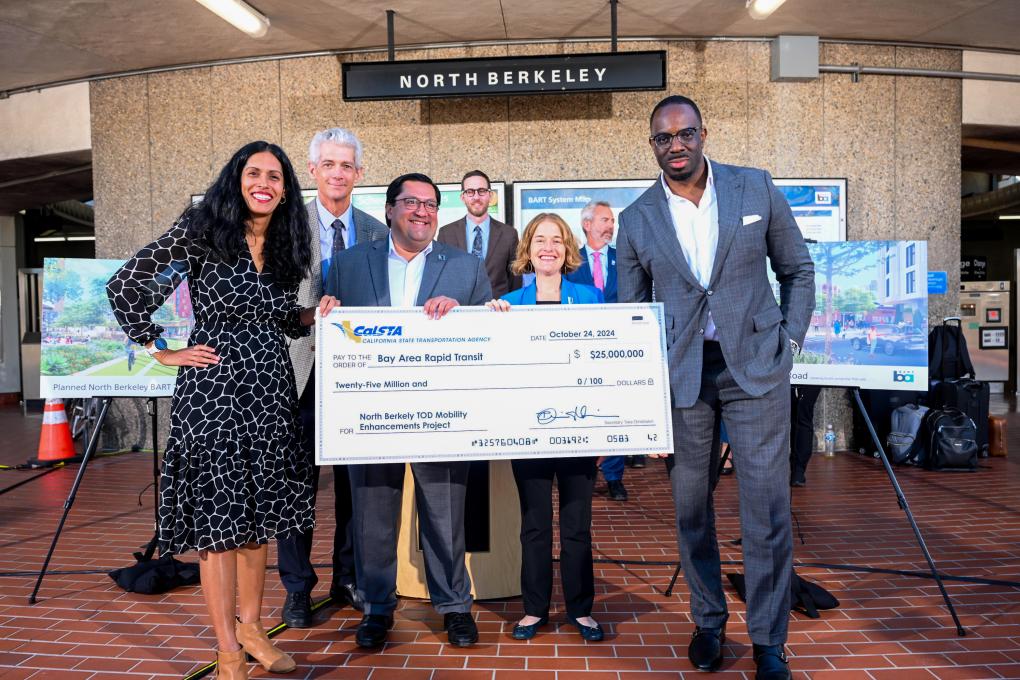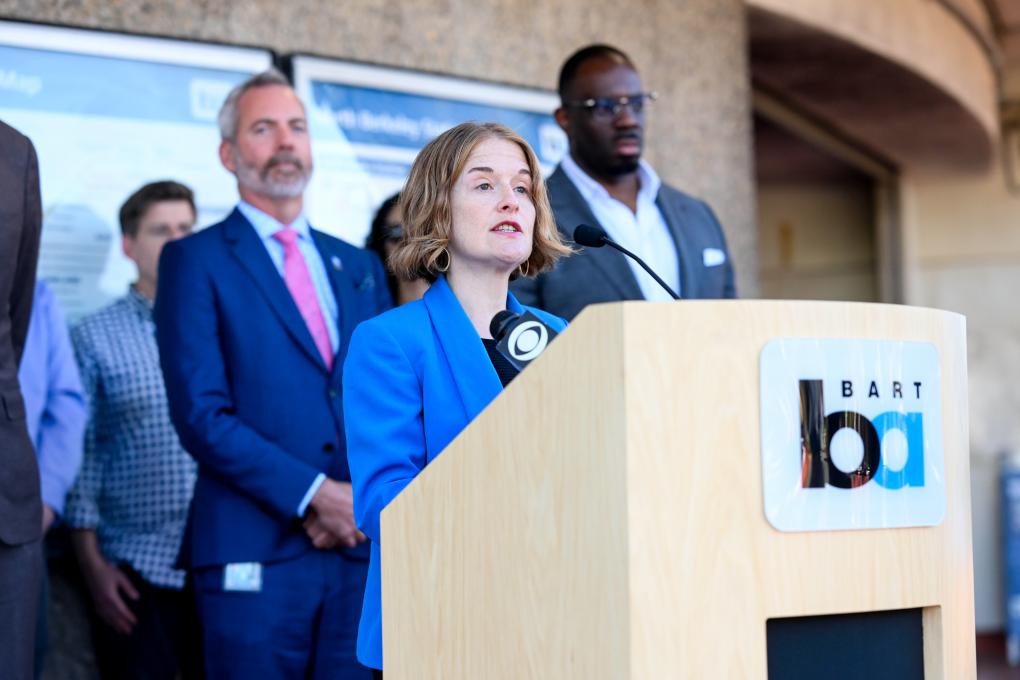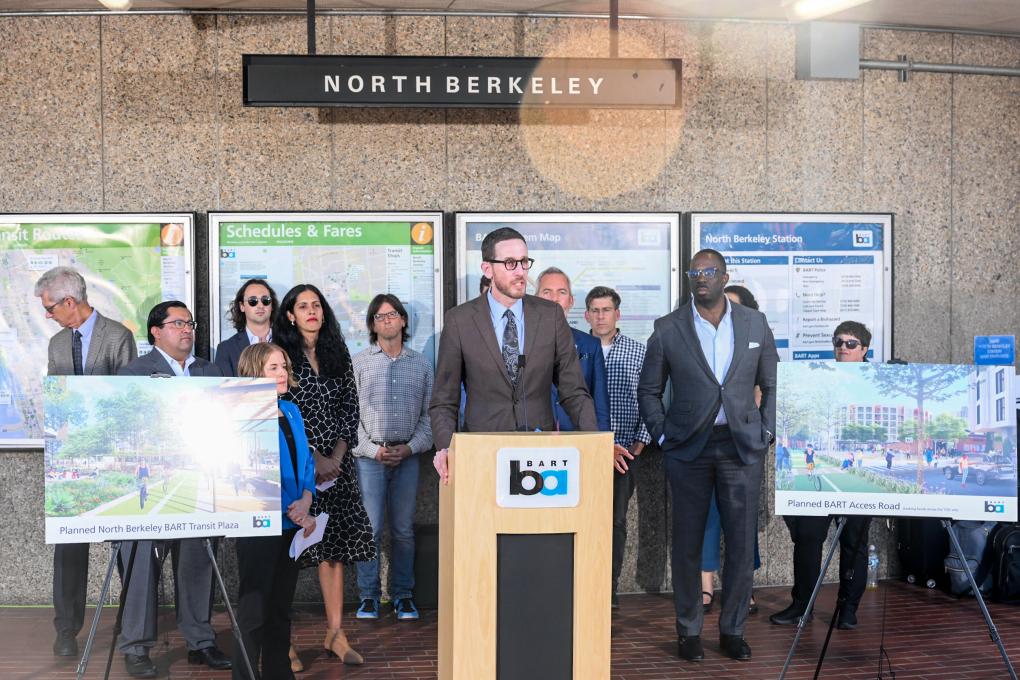BART awarded $25 million state grant for project to transform the North Berkeley BART Station
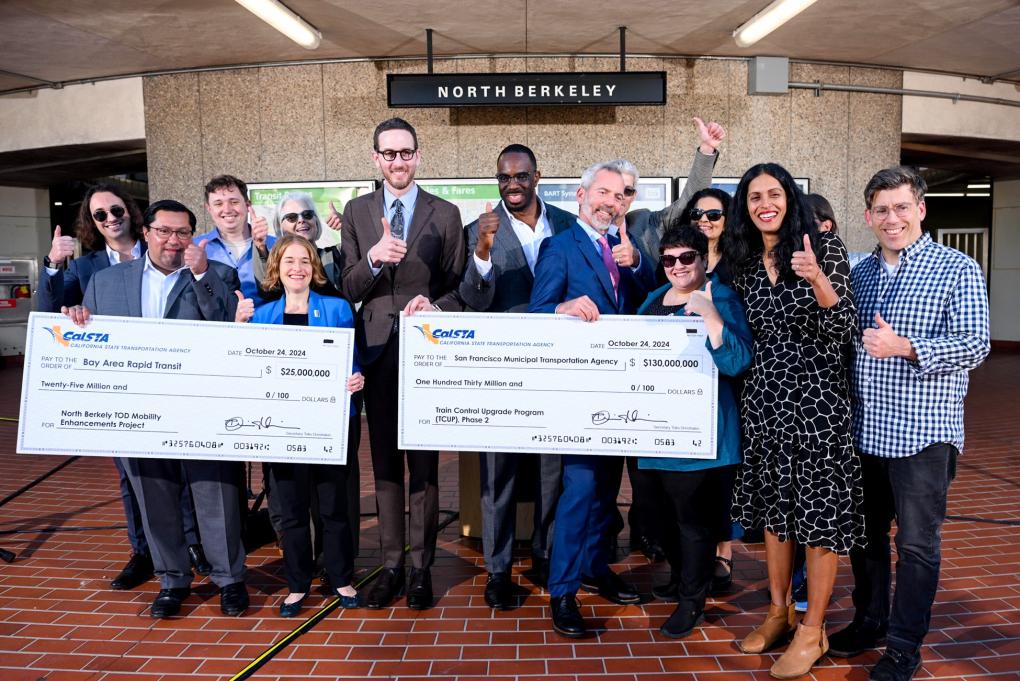
On Thursday, October 24, 2024, California Secretary of Transportation Toks Omishakin announced at the North Berkeley BART Station that BART has been awarded $25 million from the Cycle 7 Transit and Intercity Rail Capital Program (TIRCP) for the North Berkeley Transit-Oriented Development (TOD) Mobility Enhancements Project.
“This funding makes possible two plazas plus bike and pedestrian improvements, which will help transform the North Berkeley BART station area into a mixed-use, sustainable community,” says BART Board Director Rebecca Saltzman, who represents the station. “By enhancing access to public transit and improving bike and pedestrian infrastructure, projects like this will reduce dependency on personal vehicles.”
Key project components include BART rider parking within a TOD garage, publicly accessible open spaces including an intermodal transit plaza, and walking and biking enhancements around the station. The TOD will transform the main North Berkeley Station parking lot into housing and open space. The TIRCP funds are critical to supporting investments that enhance access to BART for current and future BART riders.
TIRCP funds will be used to enhance walking and biking infrastructure and augment multimodal connections. These enhancements are expected to boost ridership by facilitating safe pedestrian and bike access and promoting non-automotive transportation. The estimated total cost for the Mobility Enhancements Project is $37 million. Remaining funding sources are from local and state contributions.
The overall North Berkeley Station TOD project prioritizes affordable housing, aligns with BART’s TOD Policy goals and meets the strategic objectives of the TIRCP program. The project will consist of five residential buildings that will be built in phases.
BART estimates that the 739 new homes in the TOD, with approximately half affordable for households at or below 80% of Area Median Income, would generate roughly 750 new trips per day by 2031.
